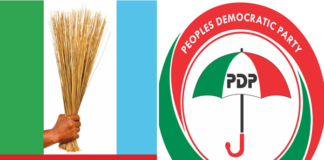Nearly 80 nations around the world implement non-interest/Islamic banking, which offers nearly all of the same financial services as traditional banks. The fact that Islamic banks do not finance alcohol, tobacco, or gambling, nor do they pay or receive interest, is a major difference.
Additionally, the financing model is not based on speculation, unpredictability, or deception. Countries such as the United Kingdom, Canada, the United States of America, the United Arab Emirates, Malaysia, China, Singapore, South Africa, Kenya, etc. are some of the nations that practice it, as well as numerous international financial institutions like HSBC, Citibank, Barclays Bank, Standard Chartered, etc.
Initially, stakeholders were unaware of Islamic or non-interest banking and did not realize it was a different approach to integrating or diversifying the financial system. A few people misunderstood how it would work and believed it to be a charitable service. However, one bank that practices this Islamic/non-interest banking model and creates more awareness about it is Jaiz Bank Plc.
Jaiz banks’ financing strategy is real economy oriented and primarily involves profit-and-loss sharing agreements, markup, leasing, and partnerships. In the non-interest banking industry, Taj Bank, Lotus Bank, and Sterling Alternative Finance are their competitors.
About Jaiz Bank Plc.
Jaiz Bank Plc emerged from the former Jaiz International Plc, which was founded in 2004 with the goal of establishing Nigeria’s first full-fledged non-interest bank. In November 2011, Jaiz Bank received a regional operating license from the Central Bank as a non-interest bank, allowing it to operate geographically in one-third of the country. The bank began full operations the following January, with three branches in Abuja FCT, Kaduna, and Kano. Its products and services includes:
Products/ Services
Personal Banking (Current Account (Qard), Savings Account (Mudarabah), Jaiz Kids Account (Mudarabah), JAPSA Term Deposit Account (Mudarabah), Domiciliary Account
Corporate Banking: Jaiz Wakala Investment, Working Capital Financing (Murabaha), Project Financing/Construction (Istisna’), Lease to Own (IjarawaIqtina Corporate) Finance, Jaiz Ijara Service Corporate, Equity-based Finance (Musharaka), Bonds and Guarantee (Wakala/Kafala)
Others are Agricultural Finance, MSMES Financing, Trade Finance, Special Support Facility
Board of Directors
The Board is peopled by men of experience and stature but for brevity, we will dwell on only the Chairman and CEO.
Alhaji (Dr.) Umaru Abdul Mutallab, CON- Chairman
Alhaji Mutallab is a well-known business figure and former minister of the Federal Republic of Nigeria. He is also a former Executive Vice Chairman and Managing Director of United Bank for Africa (UBA), and Chairman of First Bank of Nigeria Plc. He is a Chartered Accountant. He is a fellow of both the Institute of International Bankers Association (FIBA) in the United States and the Association of Chartered Certified Accountants (ACCA) in the United Kingdom.
The current MD/CEO Hassan Usman will leave the stage on October 16, to be replaced by Dr. Sirajo Salisu who is the current Executive Director, Business Development, North.
Hassan Usman – MD/CEO
He was appointed as the Managing Director of Jaiz Bank Plc in June 2016. He is a trained accountant, graduating with a first-class degree in Accounting in 1985 from Ahmadu Bello University, Zaria, Nigeria, and becoming an associate member of ICAN in 1989 and Chartered Institute of Bankers of Nigeria (CIBN). He obtained a Post Graduate Diploma in Management in 1995 from the Maastricht School of Management.
Mr. Usman also attended the Oxford University Advanced Management Programme in 2002 and worked in several companies before joining Jaiz bank.
The bank has other board members, management staff as well as its shareholder groups which include Islamic Development Bank, foreign institutional and private investors, and Nigerian private and institutional investors.
Investor Relations
The bank has a market capitalization of NGN 31.1 billion and closed its last trading day on the Nigerian Stock Exchange at 0.90 NGN per share (NGX). JAIZBANK traded 401 million shares in 2,458 transactions valued at NGN 346 million during the period, with an average of 6.36 million traded shares per session.
Performance
The bank stated that its balance sheet grew to N300 billion at the end of the 2021 fiscal year, with an average of 30% growth so far, year on year, and a 40% profit margin year on year.
Since its inception, other critical parameters such as customer deposits, branch network, and profitability have all increased year on year.
Achievements
The bank started with a share capital of about an N5billion in 2012, now it has a market capitalization of NGN 31.1 billion
Its branches increased from three during inception to 45.
Starting as a regional bank, the bank is now a national franchise, with branches in the southwest and south-south parts of the country. More branches are being opened
Won awards such as the Most Improved Islamic Banking awards in 2020 and 2021, respectively, from the Global Islamic Finance Awards (GIFA).
Jaiz bank maintains the record of being the first Islamic bank in the world to break even within the first three years of operations even when there were no Islamic banking and finance instruments to invest in the country.
Jaiz bank and other Islamic banks have potential in emerging markets. However, they will be unable to finance market segments that are against its ethics and core values, and like other conventional banks, they must contend with the same risks such as credit, market, operational, and liquidity risks. In addition, Islamic/ non-interest banks.
However, the prospects for Islamic/non-interest banking models are not inconceivable, especially after gaining popularity and assisting some financial institutions in avoiding the worst of the economic meltdown and global recession. This is because this model is not vulnerable to losses from investments in toxic assets, nor is it reliant on exotic derivative instruments.
Furthermore, recent experiences have shown that people’s interest in Islamic Banking extends beyond just Islamic investors. For example, the United Kingdom is said to be the hub of Islamic banking, despite the fact that only 5% of its population is Muslim. As a result, governments and regulators in countries such as Nigeria have recognized the significance of Islamic Banking as a viable alternative to traditional banking.
(Nairametrics)















